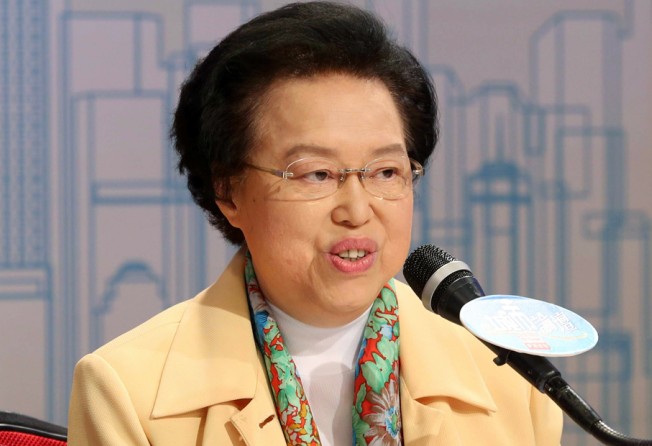
Beijing not ready to lay down law on 2017 election
As CPPCC spokesman reveals concern about vote reform debate, local delegates at political gatherings believe rulings won't come yet

Beijing is unlikely to make any "decisive" move on Hong Kong's electoral reform because a consultation exercise is still ongoing in the city, a veteran Hong Kong deputy to the National People's Congress said yesterday.

It is believed that state leaders will address local delegates on matters relating to the reforms due to be introduced in time for the 2017 chief executive election.
Tam, a member of the Democratic Alliance for the Betterment and Progress of Hong Kong, refused to speculate on what might be said. However, she did say: "The central government won't take a decisive [position] because the public consultation hasn't finished. Otherwise, they would face harsh criticism."
The Hong Kong government's public consultation ends in early May.
Tam confirmed that leaders of the NPC will meet local deputies today "to say hello", while the Basic Law Committee chairman Li Fei will meet some deputies separately later.
Politburo Standing Committee members Zhang Dejiang and Yu Zhengsheng are also expected to address local deputies.
Tam said the city's electoral reform was not on the NPC's agenda, but comments by the spokesman for the CPPCC session highlighted the importance of the issue in Beijing. Lu Xinhua said: "I am very concerned about the issue. I hope the various sectors in Hong Kong can be engaged in rational debate on the matter."
Lu, until 2012 the Ministry of Foreign Affairs' commissioner in Hong Kong, added: "The implementation of universal suffrage … is the common goal of the central government and Hong Kong people."
CPPCC standing committee member Henry Tang Ying-yen, who ran for the post of chief executive in 2012, said his focus would be on national issues.
"I'll put forward proposals on the development of the services industry and how Hong Kong can step up its co-operation with the mainland," said Tang.
But in an apparent reference to Hong Kong pan-democrats' assertion that the city's mini-constitution does not rule out allowing the public to nominate candidates in the 2017 election, Tang warned people "not to interpret the Basic Law creatively".
He said it was the NPC Standing Committee which had the final say on the meaning of the text of the Basic Law.
Tam also said so-called public nomination was against the Basic Law, which states that candidates shall be put forward by a nominating committee.
But she added that public recommendation could be acceptable as long as it did not weaken the committee's authority.
"Recommendation shouldn't be made an official procedure, but everyone can recommend anyone to run for the election - and then the committee members should make their choices of their own free will," she said.
In a rare show of support, Tang, who lost to Leung Chun-ying in the 2012 race for the city's top job, went on to call on Hongkongers to give Leung "more time", rather than keep questioning his competency.
"It seems that his administration did not get off to a smooth start," said Tang. "However, in the past year, Leung has worked hard on many policies that benefit the people - and are quite good: such as increasing land supply and building more public homes."